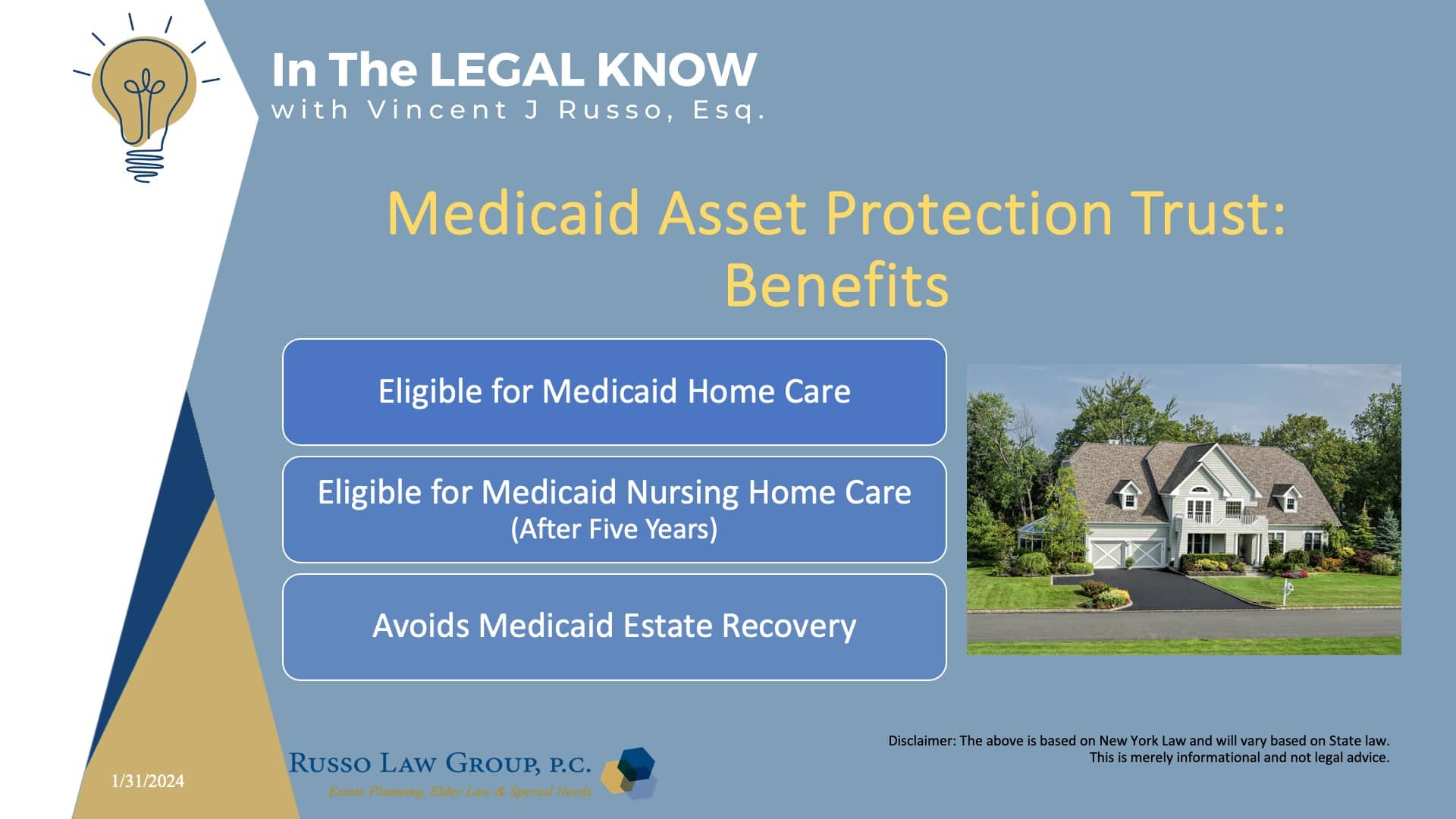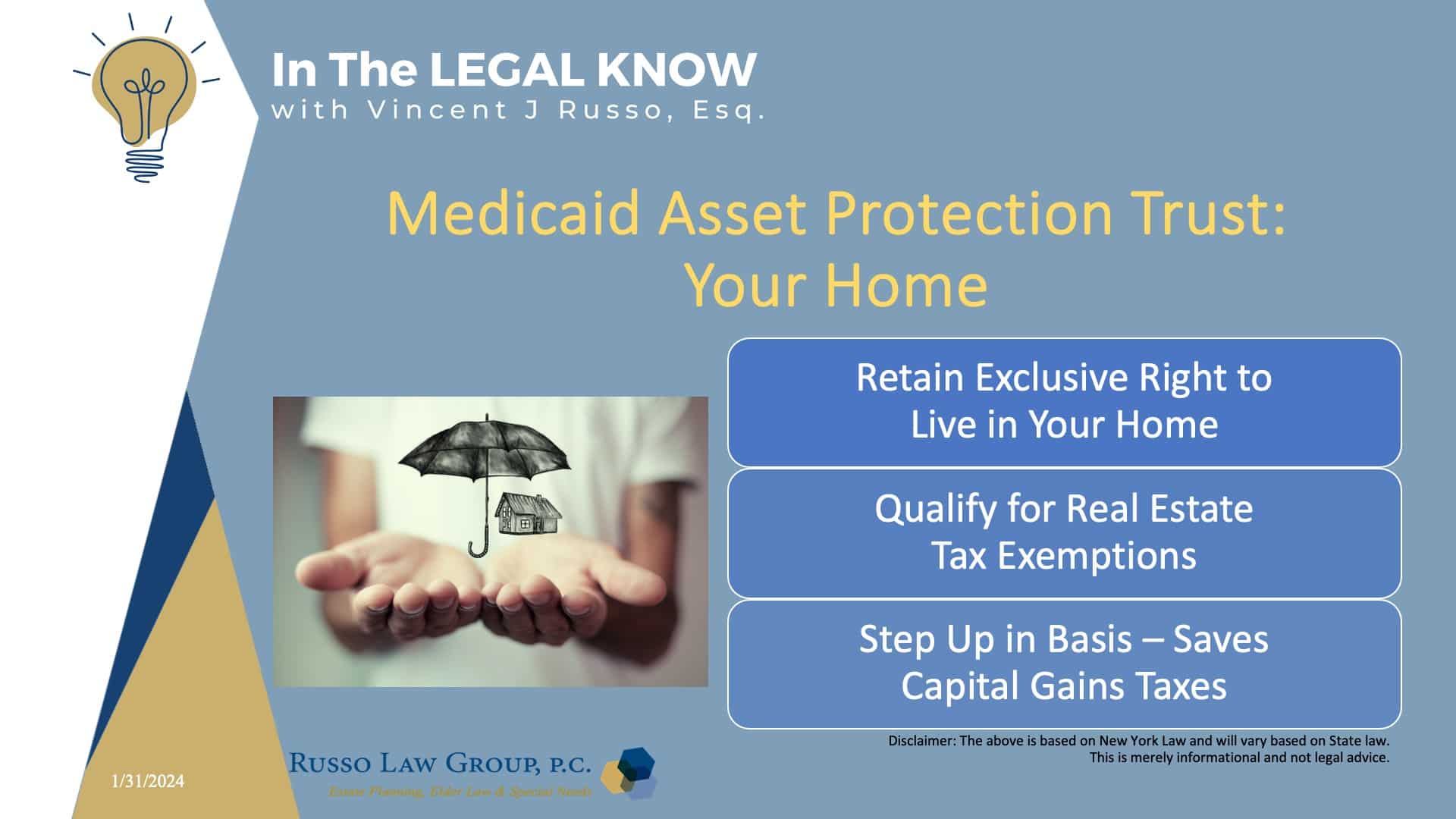This originally aired on the Catholic Faith Network’s show CFN Live: https://youtu.be/mUrGKFJ5NOE The Silver Tsunami…
This originally aired on the Catholic Faith Network’s show CFN Live: https://youtu.be/FvuJxohc41Q

Not only are nursing homes expensive but the cost of care in the community is expensive as well. The average cost of home care is over $60,000 per year.
Since the cost of long term care at home or in a nursing home can wipe out a senior’s lifelong savings, the Medicaid Asset Protection Trust is a vehicle that can protect one’s assets while accessing Medicaid to pay for long term care.
What is the Medicaid Asset Protection Trust?
The Medicaid Asset Protection Trust is a special type of Trust which can is funded with your assets such as your residence.
This will allow an individual to be:
- Eligible for Medicaid home care immediately,
- Eligible for Medicaid nursing home care after 5 years from when the trust is funded as a general rule, and
- The Trust assets avoid a Medicaid estate recovery when you pass away.
Trusts can be complicated, how does the Medicaid Asset Trust work?
Like setting up a living trust, there is a trust agreement between you (the person setting up the trust) and your trustee (typically a family member such as a child).
You would then place your assets into the trust by retitling them. For example, you would change the deed to name of the trust the legal owner of your home. While you would continue to live in your home.
Your trustee will manage the trust and upon your demise, your assets will pass to your beneficiaries that you name in the trust (such as family).
How can the Medicaid Asset Protection Trust protect a senior’s home?
As a practical matter, the senior has the rights of ownership, but the legal title is in the name of the Trust.
The senior has the exclusive right to use, occupy and possess the home. The senior continues to qualify for senior’s real estate exemptions (such as Star), as well as being treated as the owner for income tax purposes.
A bonus is that the residence avoids probate on the individual’s demise and there is a step up in basis which can save capital gains taxes when the family sells the home after the senior passes away.
For Medicaid eligibility, isn’t there a five year lookback rule for asset transfers?
This is where it can get confusing. First, it depends upon the type of Medicaid you are applying for.
For Medicaid home care, at a practical level, there is no five year lookback rule and no transfer penalty rule for Medicaid home care as well. The benefit of the Medicaid Asset Protection Trust is that the assets in the trust will avoid a Medicaid estate recovery claim when you pass away.
As a general rule, if you receive Medicaid home care while owning your home, upon your demise, Medicaid will make a claim against your home to recover the cost of the Medicaid provided. As I said, this claim can be avoided by having the Medicaid Asset Protection Trust owning your home.
What about qualifying for Medicaid nursing home care?
For nursing home care, there is a five year lookback period in which any uncompensated transfers during that period will create a Medicaid transfer penalty for nursing home care.
There are exceptions to this rule such as transfers between spouses which I will not get into today.
So, when planning in advance, the use of a Medicaid Asset Protection Trust can protect your assets. Generally, you will need to wait out the five year lookback period before qualifying for Medicaid nursing home care.
Since the rules are complicated and your life savings and your home are at stake, I strongly recommend that you seek the counsel of an experienced elder law attorney to protect you, your family, and your assets.
For more information, download our free Medicaid Planning Guide HERE.
We hope you found this article helpful. Contact our office today at 1 (800) 680-1717 and schedule an appointment to discuss what makes sense for you and your loved ones.






Comments (0)